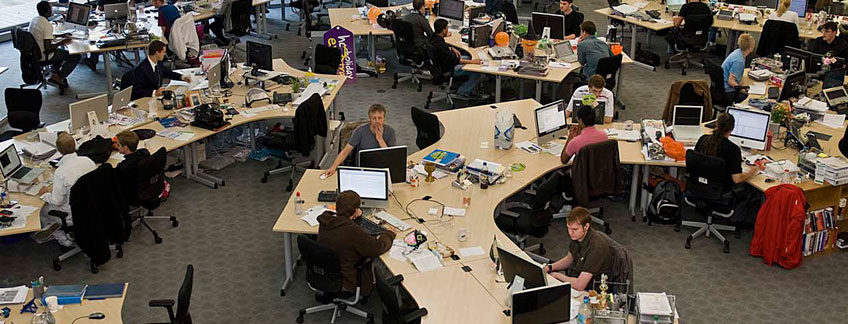
Are You Preparing For The New World of Work?
With the arrival of a new year, political debate in Australia has turned to industrial relations and the unsustainable impediments to productivity, such as penalty rates, minimum wages and the like. The Productivity Commission has signalled a wide ranging review, designed to ‘bust myths’ about Australia’s workplace laws. We can expect the usual tiresome debate, with both sides of the political argument taking their usual positions and each demonising the other for their respective views.
It would be a breakthrough to hear some new views on topics such as the future of work and how we could start to re-imagine 21st century workplace before we get too bogged down on the rights and wrongs of double time on Sundays and minimum four hours pay per casual shift.
If you are under forty years of age and have completed at least secondary school education, then, overall, the future looks extremely positive for you. If you have gone on to complete tertiary education, even better. The reason is that the numbers are in your favour. We know that the baby boomers are reaching retirement age. Within 10 years the Australian workforce will look very different. Unemployment rates will plummet and the biggest headache for employers will not be penalty rates, but finding and retaining a reliable workforce that will enable them to keep their doors open.
With that backdrop, we can start to imagine a very different type of employment contract negotiation taking place.
“Olivia, congratulations on your pregnancy. Yes, it’s all registered in your on-line career management file. We agreed with your request in advance that when you had a baby, you would take a Maternity Leave of 6 months and then work from home 3 days per week for the next six months before returning to work full time, but with 2 days from home. If that still works for you, then we will make sure the data and comms links are securely connected to your house, so that we can make that work.”
“Hi Matthew, we’d like to offer you the role. You’ve indicated that you have elder care responsibilities and your partner regularly travels overseas for work, so you need flexibility at those times with the kids’ school arrangements. Let’s work that into a career management agreement, so that we both get the certainty we need to make this work.”
If you think that sounds far-fetched, then think again. Smart, contemporary leaders know that they will have to create new workforce paradigms to stay relevant. If you look across your office today and are concerned about the capability or commitment of your employees, then you really should be reviewing the investment you make into understanding and developing positive workplace culture. And unless leaders act now, things will only get much, much tougher.
The only answer is to invest in your people; provide a compelling environment that matches their 21st century lifestyles and ambitions. Oh, and try being more honest and transparent in how you lead. Your employees will only be as transparent with you about their wants and needs, as you are with them. The next generation of ‘employees with choice’ will be demanding and have a much lower tolerance to nonsense from bosses who don’t get it.
In ten years, we will shake our heads in disbelief that, in 2015, we were so bogged down with minimum wage and penalty rate debates.
